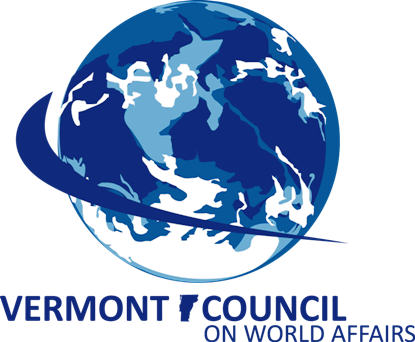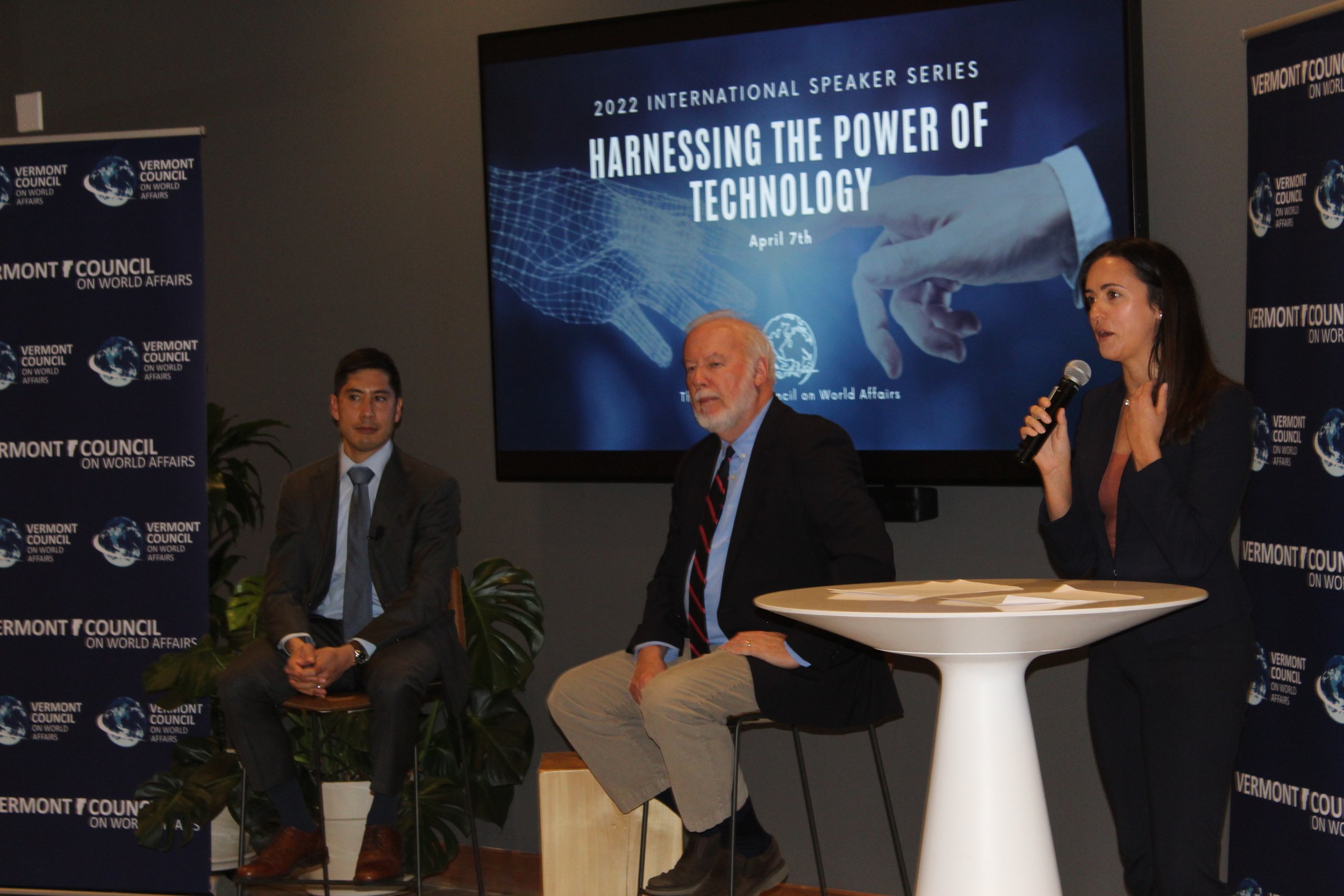Harnessing the Power of Technology: Opportunities, Challenges, and Caprice for Peace and Security
The Vermont Council on World Affairs (VCWA) was pleased to host technology policy experts for an all-day International Speaker Series event on April 7, Harnessing the Power of Technology. Events included the issue of digital equity and inclusion, systemic racism in cyber security, geopolitics in cyberspace, and the rise of digital repression. Rapid changes in the type, prevalence, and use of technology have left a global impact that has disrupted the prevailing political order. The challenges in today’s world, as the panelists explained, are different from those of previous years in myriad ways, as technology has increased interconnectivity and information dissemination, but also enabled illiberal and exclusionary tendencies in politics and discourse. A prevailing theme across the panel discussions was the capricious nature of the technologies themselves, that the innovations themselves opened up both opportunities and threats for established order, and that these impacts have been experienced differently across different communities.
The first panel discussion, between Information Technology and Innovation Foundation executives, panelists Robert Atkinson and Daniel Castro, and moderator, UVM professor and former foreign service officer Edward McMahon, highlighted the challenges of equitable distribution of technology access. “30% of the most popular Federal websites do not meet the basic accessibility requirements. Half of the Federal websites that we looked at failed on at least one of their 3 most popular pages,” stated Daniel Castro, highlighting the disparities in impact. Robert Atkinson remarked about the current administration’s plans to tackle these challenges at home. “The infrastructure bill that Congress passed last year [allocated] probably $80,000,000,000 for broadband infrastructure in the United States.” He continued, “if it's managed properly by the Biden Administration, this will close most of the rural broadband divide.”
The second event, a panel discussion between Women of Color Advancing Peace and Security technology experts, Sayako Quinlan and Ayan Islam, highlighted ways that the exclusion that was central to the discussion in the first event have manifested in the cybersecurity sphere. First, as Quinlan pointed out, the racial tension in the US creates tremendous vulnerabilities, as foreign powers can utilize technology to exacerbate this dynamic and create destabilizing resentment. Second, as Islam and Quinlan both point out, hiring practices in the field have diminished representation for communities of color, which are more likely to focus on responses to this vulnerability and others impacting their respective communities. This event was moderated by Kathleen Hyde of Champlain College. “If we don't have diverse representatives [and] diversity of perspectives in the room, particularly at the decision-making table, then […] we're only looking at the problem from one vantage point. As a result, we do ourselves a disservice,” Ayan Islam explained. Quinlan echoed these concerns, remarking that “in entry level positions we are starting to see an increase in undergraduate students of color becoming full-time employees, but at higher levels once you get to the Director/Vice President/CEO at a cybersecurity organization, it is very far and few between.”
The third event, a discussion between Adam Segal, a technology expert at the Council on Foreign Relations, and former Burlington Mayor Peter Clavelle, echoed the concern of the first point discussed by Quinlan in the second event. Actors on the global stage now have, according to Segal, a myriad of tools of power that can be utilized to destabilize, manipulate, blackmail, and establish soft power. In this event, Segal explained the role that information plays in modern warfare, as well as how tactics such as cyberattacks have been powerful and effective tools of illiberal regimes in advancing their interests. “There is a discussion in the UN about what the rules of cyberspace should be. The Chinese, Russians, and some others have argued that cyberspace is such a new space that we need a new international treaty, and the US and its allies have long fought that,” Segal explained. He added, “President Clinton had a very famous line when he was talking about China and the Internet, and said that, you know, controlling the Internet would be like nailing Jell-O to the wall. Well, it turns out the Chinese actually are very good at nailing Jell-O to the wall.”
The keynote address took place in Hula Lakeside, with business, university and non-profit sector attendees in the audience. Tying together the themes of the event, Carnegie Endowment for International Peace Senior Fellow Steven Feldstein discussed the role of authoritarian governments in weaponizing some of technology’s caprice to advance their geopolitical agenda and entrench their oppressive rule. Feldstein, talking with the senior editor of the VT Digger, Jim Welch, provided a nuanced analysis of the challenges that new technologies are presenting for international order and liberal democracy. “How can democracies in Europe, Asia, Australia, the US, and Canada […] come together to fight back against some of the more insidious uses of these [digital repression] tools by autocratic regimes?” Feldman asked, also highlighting the tightrope walk that must be undertaken to .
VCWA members and those who purchased a ticket to the hybrid event, but were unable to attend, are encouraged to view the event recording by contacting marya@vcwa.org. Information about future events at VCWA, including future International Speaker Series events can be found at https://www.vcwa.org/upcoming-events.




